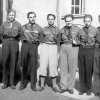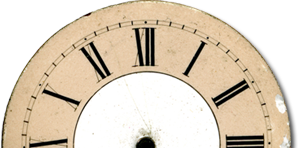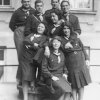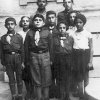Betar
"I mainly had to work with the youth group. I looked after the little ones. I myself was not a grown-up either; I was about 16, 17. Each Sunday I brought together the 11- and 12-year olds, they were a particularly good group. We went hiking every Sunday, always together, and all of them came. The group was particularly good because all of them came and because they were good they all came. That was really an impression. And most of that group did eventually save themselves" (Zwi Gol, formerly Hermann Hahn).

The Association of Zionist Young Ramblers (Jungwanderer) had in the early 1920ies started to put across Zionist ideology to children and youths and to make emigration to Erez Israel, at that time Palestine, attractive to them. An intensive Zionist activity however only started in 1928 under the influence of the Viennese "Brith Trumpeldor" (Betar), the revisionist Zionist Youth Movement.
On Tuesdays, Wednesdays and Saturdays social evenings and seminars on Hebrew language and Israelite cultural studies took place in the Synagogue’s cantor house. On Sundays, either excursions or games afternoons were planned. Twice per week sports were on the agenda at the sports club Makkabi.


